Some spoilers ahead, but mostly I’m just feeling all my feelings…
Growing up, I had to deal with my mother’s love for Westerns. I can’t tell you how many times I’ve seen The Outlaw Josie Wales. One of the many joys of expanded basic cable (besides the Cooking Channel, of course) is that I get Encore Westerns. Between that and reruns of Walker, Texas Ranger, I know that when my mama comes to visit she will be thoroughly entertained.
I don’t get her love for the genre. I mean, I get it on one level. I know my mother appreciates a good revenge tale and she likes it when the bad guys grovel at the end. But Westerns? Really? Then again, I unapologetically look forward to watching The Real Housewives of Atlanta and all the iterations of Love and Hip Hop, so who am I to judge? We all hold contradictions, not to mention shamtastic and raggedy entertainment choices.
So, when I saw that Django was coming out during the holidays, I thought this would be something that we could watch together. I mean, I do “enjoy” an episode of Walker, Texas Ranger now and again but I’m not sure that that counts. Django would definitely give us both something to talk about.
I did have some apprehension about watching Django, though. For one, I am not a fan of Tarantino at all. At all. Generally, I find his work contrived, overly self-conscious, and, frankly, boring. Plus, to me he’s like the worst kind of hipster racist, a grown up version of Justin Timberlake desperately trying to affirm his black card at all times, while thoroughly proving himself to be white as hell. The living worst.
But, I was still intrigued by the movie. As a scholar of African American literature, I’m always interested in how we understand and talk about slavery today. Besides, I love Kerry Washington with a fiery burning passion and would watch her read the phonebook. (Too bad she had like five lines in the movie. She did have that lip quiver though. Can’t forget about the lip quiver).
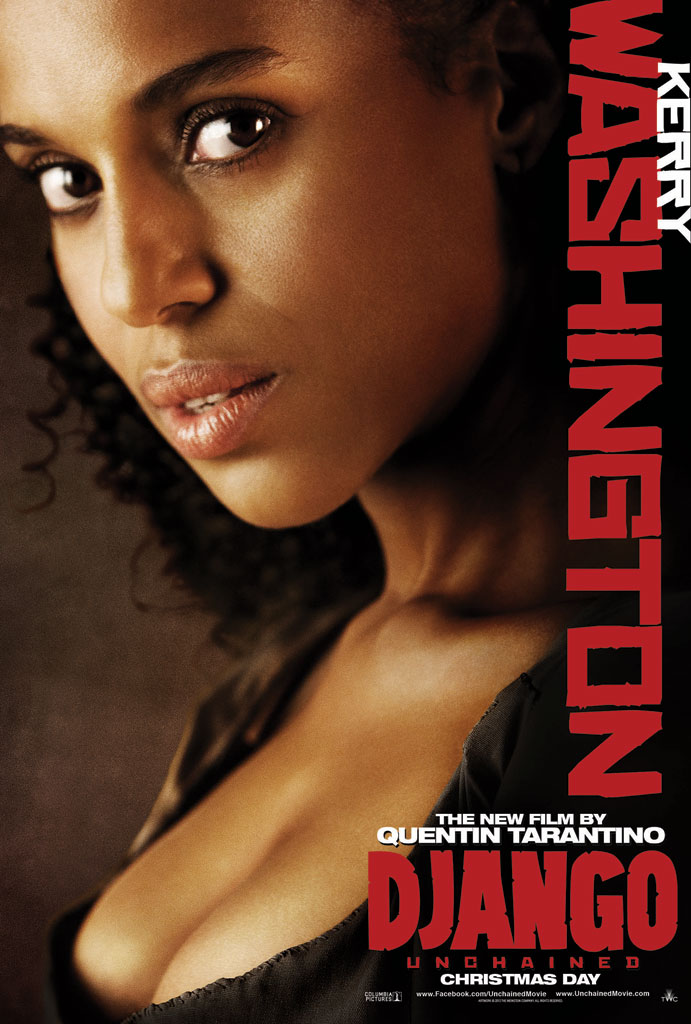
I ended up watching the movie and it exceeded my admittedly low expectations. I won’t do a formal review here, largely because I think the film has been discussed elsewhere in brilliant ways and who needs to reinvent the wheel? (On that note, check out discussions of the film by Salamishah Tillet and The Feminist Wire if you haven’t already). What I do want to talk a bit about was my movie going experience.
I decided against seeing Django while I was spending the holidays at home in Fort Lauderdale. I anticipated that my little heart couldn’t take it. I imagined some irreverent scene involving slavery and being in a movie theatre filled the laughter of whites who, in their next breath, wouldn’t hesitate to remind me of how postracial we are and how Tarantino has every right to create art as he pleases and how brilliant he is and on and on and on. I figured I might have a slavery flashback and go Nat Turner up in there and that’s not how I’m trying to go out, folks.
Instead of that unfortunate scenario, Mama and I headed to the movies in Atlanta on a Friday afternoon. Since my mother is a stickler for time we got there early and I did a lot of people watching as the theatre filled to capacity. Our fellow viewers were Black—pretty much everyone as far as I could see—and largely grown. I’d say middle-aged and older. There were couples on dates. Clusters of homegirls and homeboys. Church sisters and ladies who lunch. Not the crowd that generally thinks Reservoir Dogs is awesome, interestingly enough.
I immediately felt at ease. I felt like I was at a family reunion where something dubious was about to happen but that, nevertheless, it was going to be ok because my auntie and my mama were there. Weird, perhaps, but true.
So we all sat there in companionable (semi) silence, watching Tarantino’s comedic spaghetti Western slavery action-comedy, cheering when racist slaveholders came to their timely and explosively bloody ends, sighing in satisfaction when Django finally got his girl, and laughing out loud at the absurdly funny scenes involving shit that is generally not funny at all.
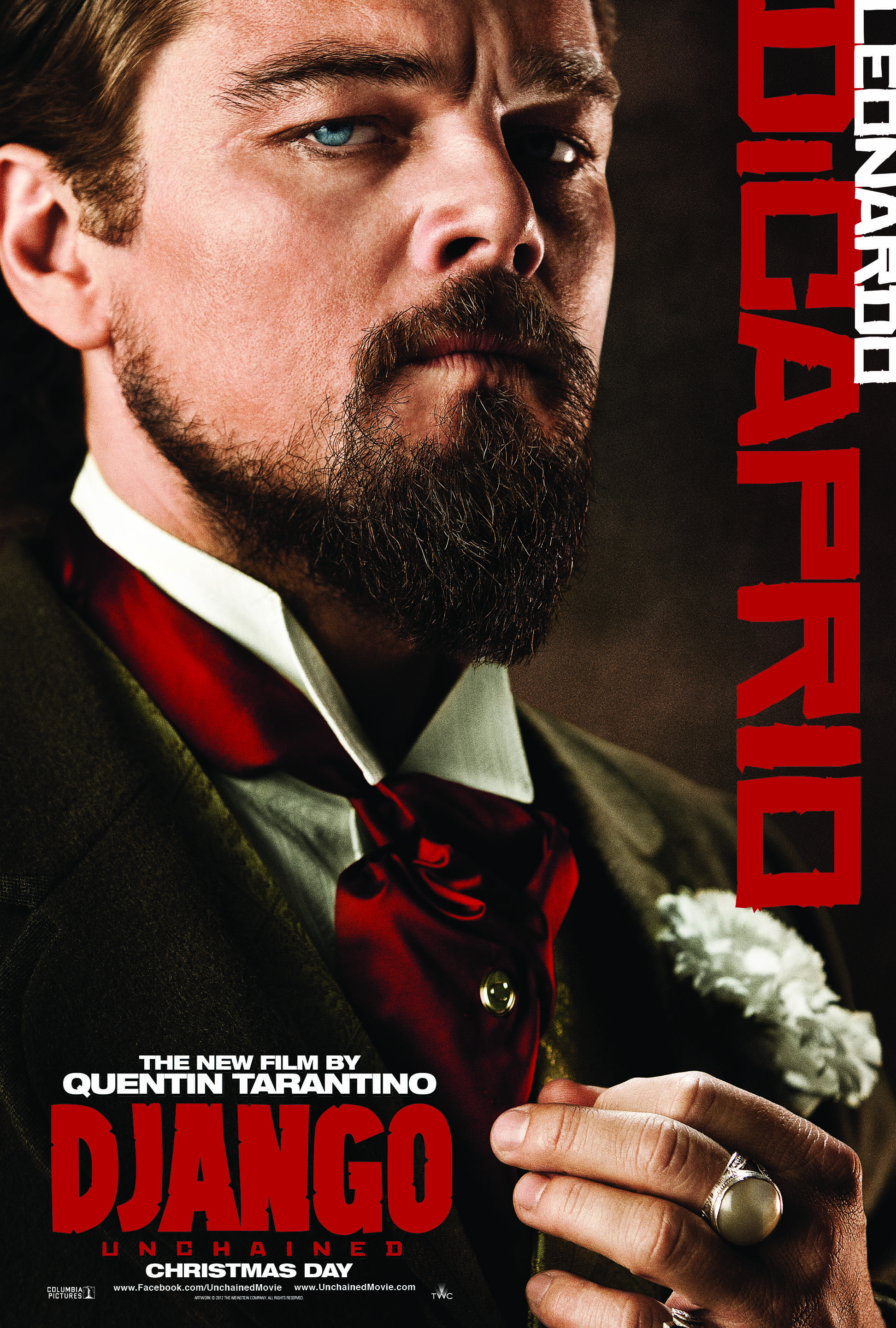
Take for instance a scene involving some night riders (aka the forefathers of the KKK). The group arrives to kill Django and his white companion but before they can get to the lynching, there’s a whole discussion about how their outfits (namely the poorly shaped eyeholes on their white hoods) are getting in the way of their appointed task. It goes without saying that lynching is not funny. I mean, really. But laughter reverberated throughout the theater. Not uncomfortable, tinny laughter that rings hollow and dies quickly in your throat. But genuine “people can be so damn foolish,” “you got to laugh to keep from crying” and “ain’t this some shit?” laughter thundered, yes, thundered throughout the theater. I don’t know that I could have laughed during this moment in another theater, but I laughed heartily on that day.
When the movie was over I asked my mom what she thought about it. She said she loved it. She loved that Django went about avenging people for his wife and that all the bad people got killed, especially Samuel L. Jackson’s old Uncle Ben looking ass. For her, it was the best kind of Western. When we went out to dinner that evening she expressed several times how satisfying it was to watch racists get cut down. I could only agree.
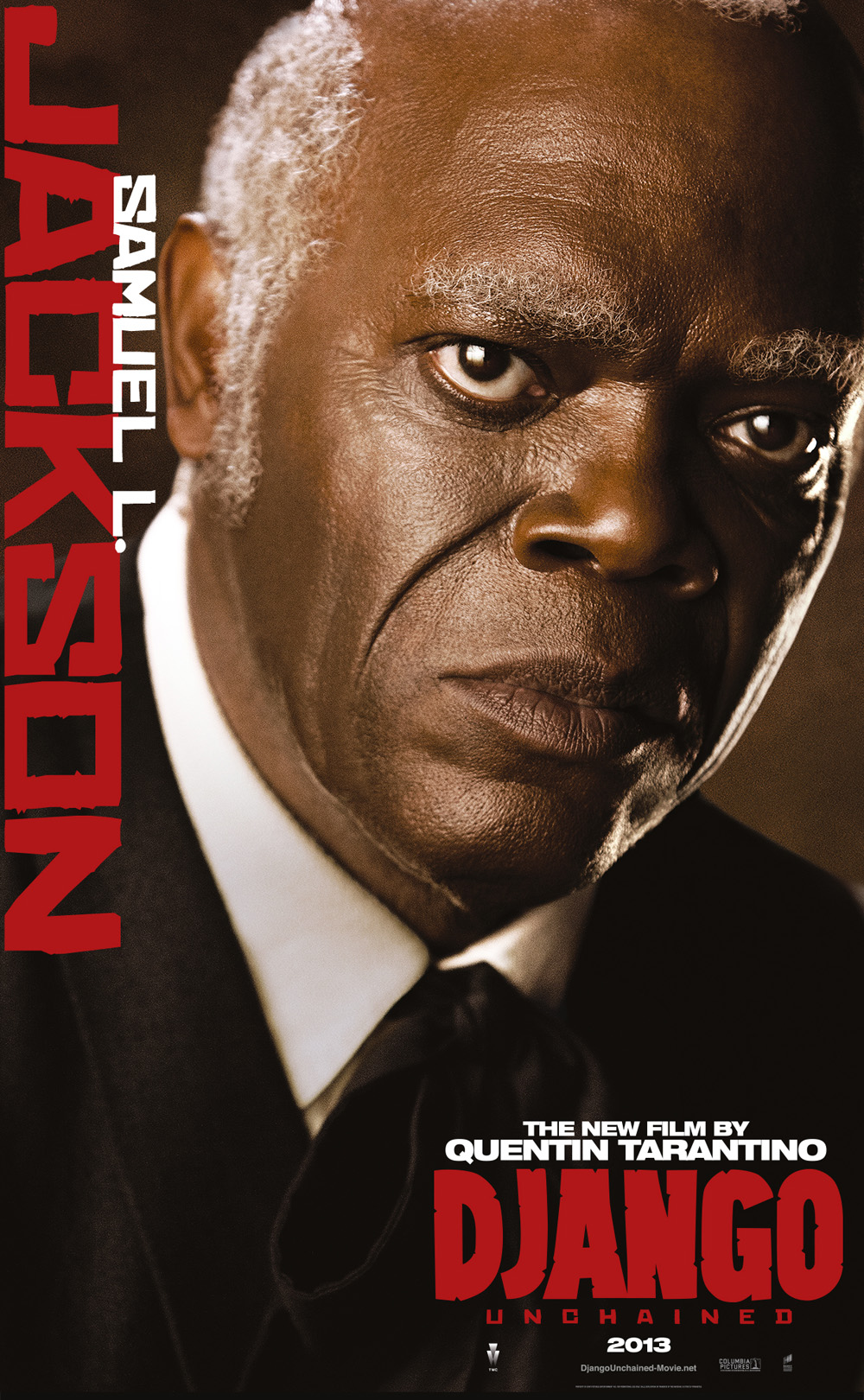
So, what’s my verdict on Django? It’s interesting, frustrating, (at times) funny, violent, limiting, problematic, thought provoking…it’s doing a whole lot. I don’t regret seeing it, but it’s not in my top 10 list either. I think it is inciting interesting discussion, but I’m not naïve enough to think that this will necessarily translate to a bunch of nuanced portrayals of Black folk in slavery. What I do know is that my viewing experience was connected to where I saw the movie as much as it was connected to the film’s content and that, among other things, underscores my general ambivalence about the movie.
Have you seen Django? What are your thoughts on the film?

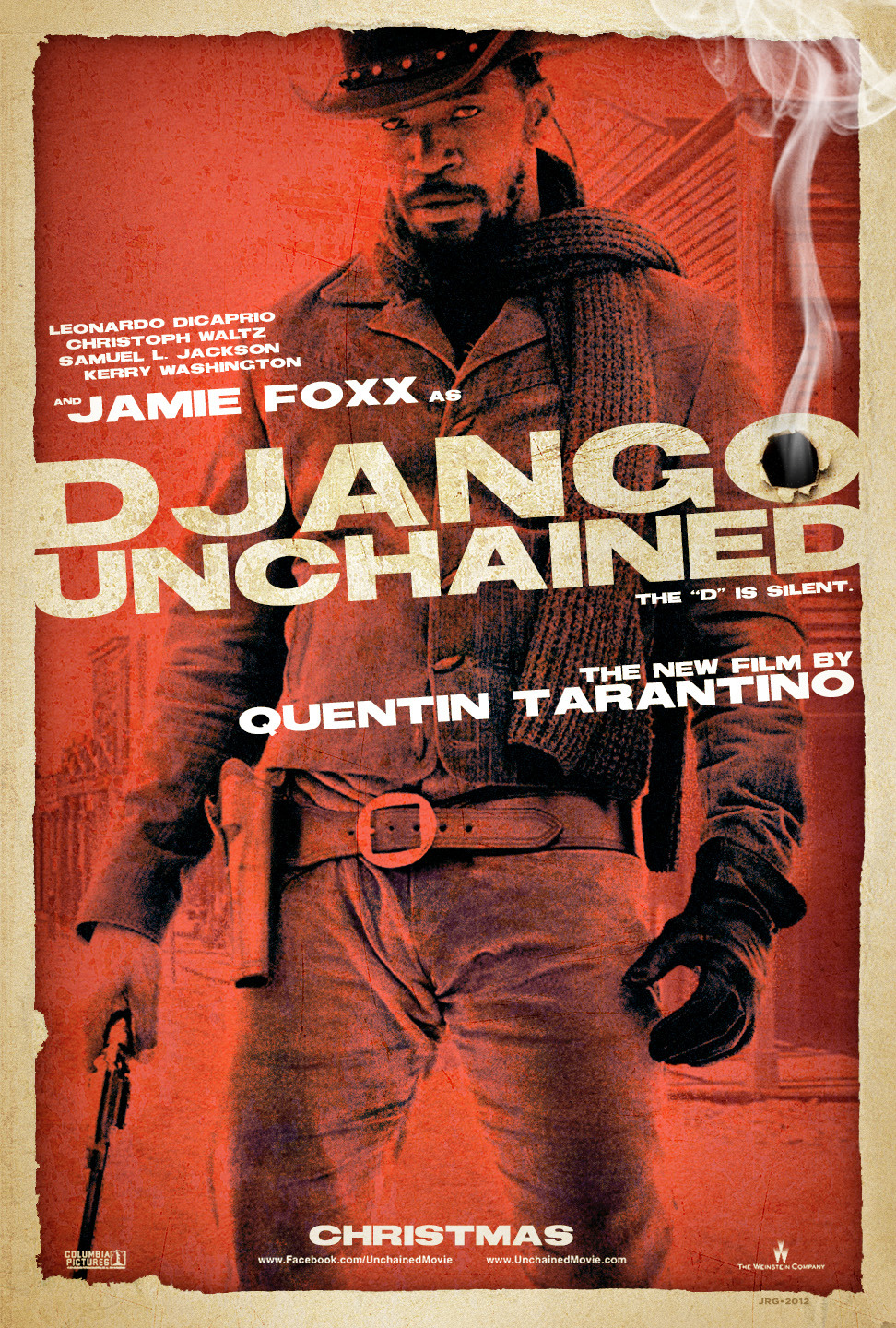
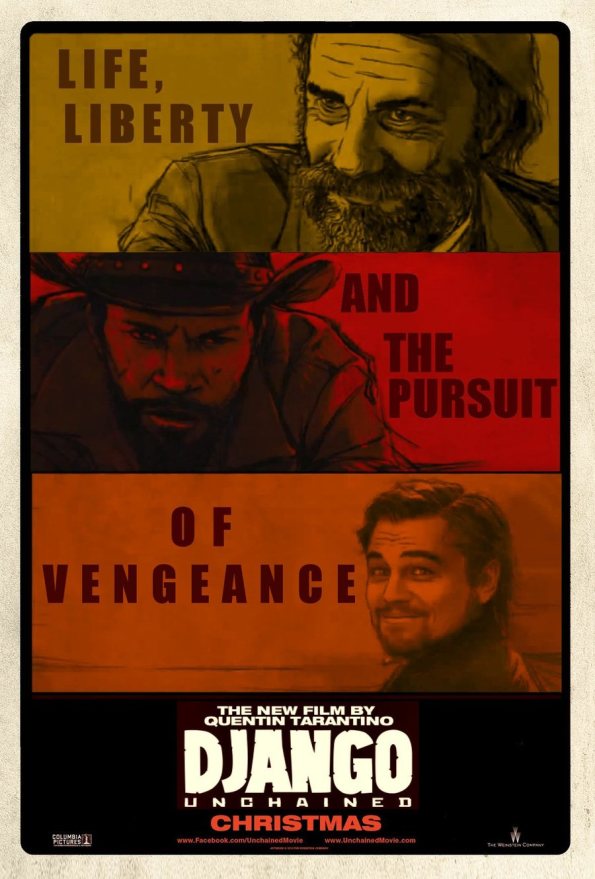
I saw Django on Friday after avoiding online reviews and discussions like the plague so I could go into it with an open mind. Although there were parts that unnerved me, like (SPOILER) that scene when the slave was torn apart by dogs and the mandingo fighting, I liked the movie. I think Jamie Foxx, DiCaprio and Jackson acted their asses off. Kerry Washington was a sight too but I’m kinda sad that she and the other women in the movie were relegated to damsels in distress and background characters.
My decision to see or not see Django has changed several times. First, I will, then, I won’t. Sunday night, 1/6, I watched Oprah Winfrey’s interview with Jamie Foxx. I found the interview, probably, as interesting as I would he movie.
After being an avid movie goer the first decades of my life. I began to feel bored by movie vacuity, and, as I learned more history, “poetic license” that is expected in books began to block my pleasure in movies. license. As I have come to see, and know, the effect on the mind and sense of reality and value that the ubiquitous America graphic media holds, I became less accepting of the power of the graphic media. One can “label” a book fiction or non-fiction. Yes, there are documentaries, but I suspect that many take Hollywood entertainment as fact.
My grandmother, who was born not too long following after slavery, was taken to the movies every “Thursday night” by an adult daughter. She saw the traditional fare in her neighborhood in Houston, home of “Easy Rawlings,” a serial, cartoon and, a “B” film. “Mama” never understood that the character who was killed in last week’s movie reappeared “alive” the next week. Just as she talked to the characters on her soap operas every afternoon.
With change in the massive media blitz, I think that many movie viewers are closer to my grandmother in comprehension of what they see and hear than the should be.
I am intrigued to see Django, if i do go, I hope I am not as disappointed as I have been by 90% of the movies I see, today, even as I try to be “selective.”
I watched! Here’s my two…http://www.luvandkiwi.com/2012/12/django-d-is-silent.html
I saw Django in theaters in Maryland. I think the most surprising part of the viewing experience for me was when (SPOILER) the scene opens and you see Django was strung up from his legs naked, with his testicles exposed. When this happened, the kids sitting next to me laughed. This is our hero, being brutally tortured, and they laughed. I get laughing as the bad guys’ heads explode and such, but I think that this laughter demonstrates a gross desensitization to violence.
Not at all to minimalize what you speak on, but I would be remise to state that if you were sitting next to kids, and there were testicles showing-contrary to the seriousness of the film…kids laugh at the word penis so seeing testicles was probably more of them just plainly being children(immature still).
I have a problem with kids being there at all. The film is R-rated. Very sad to think they saw things — many of which would be titillating – for which they have no context.
Slave owners never let slaves fight to the death. Why would they risk their economic investment?
What about the lack of black agency in the film? Jeffrey Wright has spoken on that: http://liftingasweclimb.wordpress.com/2013/01/19/more-on-django/
David Denby looks at Django in the context of Tarantino’s entire body of work with some compelling observations about race. http://www.newyorker.com/online/blogs/culture/2013/01/django-unchained-reviewed-tarantinos-crap-masterpiece.html
I had the exact same experience (I wrote about it here: http://www.balancingjane.com/2012/12/django-unchained-can-quentin-tarantino.html). I watched this in a mostly white theater (I’m white, too), and was initially disturbed by the audience laughing at things like the use of the n-word. I thought maybe that was just laughter dealing with racial tension. Then a group of young white women laughed at the scene you’re describing, which was just such a raw, painful portrayal of dehumanization. I was more sickened by their reaction than anything I saw on screen.
@jojo222, some women laughed in my theater during that scene too. I read it more as the uncomfortable laughter of people unused to full frontal male nudity in film.
@crunkadelic I enjoyed hearing your take on the film. An audience can sway my opinion of a movie in a hundred major and minor ways too. QT as the Justin Timberlake of filmmakers seems painfully right. One of the things I’ve really enjoyed in his last couple of films though is the way he’s trying to get white audiences to be a bit more conscious of their complicity in the violence he’s showing onscreen — the Inglorious Basterds film-within-the-film, for example, with all of the Nazis in the audience reveling in the violence, or the part near the end of Django when Schultz gets upset that Candie’s sister is playing Beethoven on the harp. And I like the way he’s used foreign languages in the last two films as a way of mocking American provincialism. But I am something of a Tarantino defender…
All time favorite QT film – Death Proof. A damn lot of blood, but the heroism of some strong ass women getting their say in, any day-anyday. And with the talents of Zoe Bell, Rosario Dawson, Vanessa Ferlito, Sydney Tamiia Poitier, Rose McGowan and my fav Tracie Thoms how can you go wrong. @crunkadelic, check it out if you will.
I too have gone back and forth about seeing the film, and much like @authorextraordinaire, my appreciation for hollywood films linger only on the fact that they are there to entertain and nothing more. The information and/or attempts to educate any audience, I believe, has no longer become or ever was a means for hollywood. I’m a movie fanatic, I mean seriously. I would watch movies all day freakin’ long if I could. Get paid to do it – yes I would! But, I have never really been a big Jamie Foxx fan, his acting has always been viewed by me as sub-par, I don’t really care for his singing either but when I saw just a image of him for this film, for some reason I wanted to see it almost immediately. Having not seen any previews I had no idea what the basis of the film was about at all. But I’d heard many ppl talking about it, mocking it, disowning it. And too, I have read many ppls reviews on it. For now my swaying in truly seeing is still back and forth. Although I must admit that I also had no idea that Kerry Washington was in it, and second that I would watch her too read the phonebook. Sway!!!
The last time this film was posted about I mentioned how I talked to a neighbor and his friend about not seeing films that depict slavery in them. Well to add to, no film that depicts slavery, or genocide (Hotel Rwanda) are films that are easy to watch/stomach. They aren’t meant to be. They are meant to cause some sort of emotions within, to educate, to inform and provide a possible real visual of what has happened in Our history. These type of films are hardly ever hollywood. Again, Django sounds like a QT hollywood flick. Nothing more, maybe. Depicts slavery in a way that reveals to the audience these are the types of situations that happened during slavery. These characters are merely characters. So I could imagine on scene that in any moment a Black person being killed by ravaging dogs aint supposed to be a pleasant scene, and if in reality wouldn’t be either. Of course I still always feel like my ppl should see ALL slavery films, so that we can intelligently and openly discuss what is continuously happening to Our history as well as trying to seep into our present, as with films as this one sounds to be. We should watch films about slavery so that if there are inaccuracies, then we can discuss and take non-violent actions if need be. I understand that there shouldn’t ever be a mockery of what Our ppl went through and died through. That we should be upset and make scenes when we are yet still tired that some white folk think its okay to laugh at the past, since it is the past, or even that my ppl laugh at in which is done to subdue the pain. This shouldn’t ever be the case from anyone. Our history is real and will forever be real. And like for me still falls under that uh-uh category of things “too soon” to laugh at. Because slavery was real, and it very much still is real. And I say this, and thank my African Culture teacher from high school Mrs. Ball for the enlightenment, that these little moments (even in my likeness of QT and some of his films) when we (them) become so comfortable with laughing at, or trying to put a own spin on slavery for the sack of commercializing it, is such a slap in the face. I could go on and on about this, hell about films in general. So I’ma stop myself before I get into too a long babbling rant, lol. This is what I look forward too though, open dialogue with folks of color, truth. Anyway, I leave with these thoughts/questions, for self and others, for as much and as far as we’ve come as a ppl what organizations are we member to (me=none)? Where are our prominent and permanent producers and
Our better than hollywood (yep, I said better!!)? What can we do to be collectively the best we can be, where we can shoot our own films, with more concrete information on Our history? http://www.huffingtonpost.com/leonce-gaiter/django-unchained_b_2381878.html
http://www.theroot.com/buzz/django-slavery-toys-disrespectful-black-history
Has anyone seen Tarintino flip at the English reporter about slavery??? He goes mad at the guy all because of a bit of movie violnce
Yeh, it was a weird, defensive over- the-top interview. It was almost as if Tarantino was invoking some lines that were cut from the script, ” I am not a slave, you are not my master. You can’t force me to answer that question. I ‘m shutting this interview down”. However, I’d probably get sick of answering questions about violence if I were in his (expensive) shoes.
Haven’t seen the film, yet, Too busy seeking a publisher for my novel and memoir. Just turned down by a house I had hoped would take them. Rejection # 20. Reminded of the mutilation of Emmett Til, Medgar Evers, all the black and brown killed on the streets of America-continuously. Desecration of life has been, and is with us, not all white on black. Accidentally, clicked on Nancy Grace (hate her) to some white woman who mutilated her boy friend(?) The lack of humanity is pernicious and pervasive, everywhere. just noted BBC on Mali. What irritates me most of all are, 1. senseless violence in film, TV, games, and 1. NRA creeps given voice in these fora.
I enjoyed reading your review- thank you! There is a really good interview with 80-year-old civil rights activist Dick Gregory about the film, and regarding his opinion of Spike Lee’s criticism of their use of the N-word in the film.
Very intelligent, heartfelt, and thought provoking- I highly recommend it!
(http://www.youtube.com/watch?v=CS34OiuNmG0&feature=youtube_gdata_player)
Like you, I grew up watching westerns with my parent. I can probably quote verbatim from a few of them. I went back and forth about seeing Django because of Quentin Tarantino. To say that I am not a fan of his work or him personally is being kind. I was very much prepared for this to be a terrible movie and I was pleasantly surprised. I refer to the film as Quentin’s broken clock moment.
I had two problems with the film: One Kerry Washington existing to be saved and the character of Stephen. I understand that for the script of violent Black masculinity to be understood as a positive, there necessarily needed to be a purpose that was beyond kill all of the white people for White male viewers to be comfortable with the film. Oh look he acted out of love. The problem is that this worked to eliminate Bromhilda’s agency and erases the many risks Black women undertook during slavery to rebel or emancipate themselves.
I also think that the character of Stephen was rather simplistic. I know that we have this idea that all houseslaves were bad and the field slaves were good which is what Quentin Tarantino depended on to tell this tale. I think what many forget is that a house slave, not matter the privilege relative to the field slave is still a slave. There is no such thing as good oppression. From the time of his birth Stephen would have been raised to idolize Whiteness and to see everything about him and his blackness as good. If we can sympathise with a kidnapping victim and their complicated feelings towards their kidnapper, how is it that same understanding cannot be extended to understand what growing and living in this environment would have done to a person like Stephen? There is a story to tell there, but Quentin Tarantino went for quick and easy, rather than the complicated narrative that it deserved.
I t was a good movie like any other movie. i don’t get why folks have to feel some kind of way about it. Either see it or don’t.
What does it mean when Black feminist can have a problem Django and not have a problem with The Real Housewives of Atlanta? I would not mind at all if feminists called Tarantino out for his no having a strong Black women characters, but with yall except for one commenter, that does not seem to be the case.
Too me this is about the Black Bourgeoisie being subconsciously angry at the fact that a white boy stepped up and “freed slavery” out of academia and the back rooms of afro centric book stores, blew the dust off, and released it to “relevancy” again, by making a national conversation. And instead of pushing the ball forward, hard. We look down our collective noses in disdain. it’s a damn shame.
I reject the use of “Black Bourgeoisie/out of academia…afro-centric bookstores” as written here, and among the vast majority of the generation of people of color/blacks–born after 1970. I honor Dr. DuBois and the generations of my antecedents who modeled and taught pride, striving, and a desire for knowledge, embracing civilized-cultured-advancement beyond the hoi polloi of any and all ethnicities/races/nationalities.
I honor the unschooled men and women in my Texas and Carolina communities, who are, unknowingly dishonored–“dissed”– by the attitudes, thoughts, words and actions in most of what occurs in this “contemporary economy.” especially, among “our people.” From the grandmother of a “celebrity” who, in one story, conveyed the pain of her grandmother, child of a slave and an “owner,” and, the gentle veteran of the Spanish American war, who carried the attitude and demeanor of a general, but spent his waning years sleeping in a corner of a cotton gin as caretaker of the building.
These exemplars of how to live with dignity, from Dubois to the caretaker, Pardner Brown, from the celebrity’s grandmother, “Miss Sweet” to the great Ida B.Wells, would not sanction the dismissal of decorum and well-spoken “English.” nor the naked, vulgarity that passes for “the black experience,” today. They, and I, and many of “your” elders are ashamed of your loss.
There is, perhaps, a miniscule “black middle-class’ hiding somewhere, today, but where?
all right sista slow ya roll we know you got a dictionary, but wha? how? Huh, wha does your soliloquy have to with the conversation or the price of tea in China or two knuckles on a pigs paw? But I’ll tell you one thing in the immortal words of Grady Wilson “first they came for my N word, then they came for my chitlins and all I could do was say Good Goobly Goop!”
“I imagined some irreverent scene involving slavery and being in a movie theatre filled the laughter of whites who…”
I can’t help but feel ‘way’, about your discomfort with watching a film about slavery with “white” people and that you feel the need to surround yourself with “blacks”. Is that not itself a form of racism? To assume that the “whites” (does this include “yellows” and “browns” by the way?) would be laughing at certain story lines from racist or high horse perspectives is presumptuous.
“I immediately felt at ease. I felt like I was at a family reunion” you then follow that statement up with two paragraphs on how intune you felt in the “black” cinema community, with laughter and a common funny bone. But if they were white you wouldn’t be able to laugh along? Too concerned with questioning their motives as to why they’re laughing? You re-iterate the point I am making with the following statement..
“Not uncomfortable, tinny laughter that rings hollow and dies quickly in your throat. But genuine “people can be so damn foolish,” “you got to laugh to keep from crying” and “ain’t this some shit?” laughter thundered, yes, thundered throughout the theater. I don’t know that I could have laughed during this moment in another theater, but I laughed heartily on that day.”
But why couldn’t you take that scene in the same context in a white theatre and assume that everybody is laughing for exactly the same reason as yourself? As a Latin woman, I can laugh at the fact that we are mostly portrayed as drug dealers and prostitutes in movies and not relegate myself to latin-populated cinemas when movies about pimps, conquistadores, Spanish invasions, cartels and other f*cked up fantasies of American history are painted on-screen.
Not being able to watch a movie about slavery with white people is like a woman not being able to watch a movie about rape with men in the cinema. How is the society going to change for the better when you need to separate yourself from the “oppressors” so to speak and stay with your “family”. I would gladly sit after the movie with my friends from Burundi, El Salvador, Brazil, Lebanon and Nepal and initiate conversation, discussion and different points of view. But then again I don’t like QT so probably not.